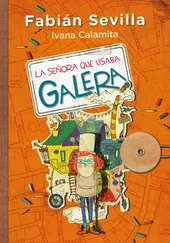• • •
I n the morning his throat feels scratchy and his muscles ache. He can’t muster the energy to take Beta for a swim and instead falls asleep again listening to her barks of protest. He gets up at midday with the shivers and a runny nose but goes to work anyway. By midafternoon he is shaking with a fever, and Débora sends him home. He leaves instructions on the whiteboard for the few students who still come to swim on the winter afternoons. He stops at the first pharmacy he sees and buys some cold tablets. The hills are no more than shadows in the gray day. He doesn’t see a single person on foot, and the few vehicles on the road are all stopped at intersections with their headlights on, unmotivated to drive on or unable to decide which way to go. The town is huddled up with cold in the light rain, and he rides quickly home with the wind making his wet clothes even colder. As he passes the fishing village, he stops in front of the travel agency, and Jasmim comes to the door to talk to him.
Great day for a ride in the rain. Are you trying to prove something?
I’m going home. I’m running a fever, he says sniffing.
I wonder why.
If I’m better by Friday, do you want to go out for some Japanese food?
Go home.
He showers and puts on several layers of clothing. He pours hot water into a mug and adds lime juice, honey, and a citrus fruit tea bag. He swallows a cold tablet, then sips his tea slowly. Beta doesn’t even get up from her doggy bed. He blows his nose until his nostrils are raw and his beard is speckled with little white scraps of toilet paper. He cuts slices of ginger and chews on them. Looking out the window, he watches a long-haired man in a sweatshirt and shorts fish with a net from a rock. The net comes back three or four times without any fish. He closes the shutters and window, gets into bed, and falls asleep.
He wakes with a start at the sound of someone knocking on the door. Beta barks. He opens it a crack and sees Jasmim closing her umbrella and taking a step forward with plastic bags hanging from her arm. She dumps everything on the table, takes off her wet backpack, and glances around like a detective looking for clues.
I heard you need a babysitter.
She places her hand on his forehead. He sneezes to one side and goes to get the roll of toilet paper.
Have you taken your temperature?
No.
Do you have a thermometer?
No.
You’re pretty hot. Here, take this to bring down your fever. And I’ve brought you some vitamin C too. I’ll leave the packet here for you.
As he watches the tablet fizz and dissolve in a glass of water, she takes a laptop out of her backpack, puts it on the table, opens the lid, and goes to plug it into the nearest socket.
Careful ’cause—
Jasmim shrieks and jumps back.
— you’ll get a shock. There’s a trick to it. Here, let me do it for you.
He plugs the adapter into the socket. She turns on the computer, and they both wait rather awkwardly for the system to start up, not really sure what to do. She types in a password, waits a little, slides her finger across the touchpad, and clicks a few things. The laptop’s weak speakers start to whisper music.
Are you familiar with Kings of Convenience?
No.
It’s good. Nice and calm. Have you got a good knife?
What for?
Soup for a dying man.
She turns on the kitchen light and rummages through the cupboards above and below the sink until she finds a large pot. He opens the silverware drawer and takes out the knife he inherited from his dad.
This is the sharpest.
She gives the pot and the dishes piled up in the sink a quick wash. Then she gets the two plastic bags and starts arranging their contents on the counter. A Styrofoam tray of chicken pieces appears, along with a cabbage, onions, potatoes, carrots, a zucchini, half a pumpkin covered with plastic wrap, celery, and a tablet of chicken stock.
I think I bought too much, but this is how I like to make soup: throw everything in. Got any garlic?
He lets his aching body collapse onto the sofa and watches Jasmim chop the vegetables, heat water, pan-fry things in the bottom of the large pot. She sings parts of the songs and sometimes sways her head from side to side and dances with her shoulders.
Is this really happening?
What?
Are you cooking in my kitchen?
She comes over, sits near him on the sofa with her knees pulled up, and stays there without saying a thing. She bites her thumbnail voraciously, turns her head, stares into his eyes for a minute, and goes back to staring at the wall. Her breathing is audible and mingles with the music, the waves, and the bubbling of the pot on a low flame.
Take it easy with that fingernail there — you’re going to gnaw your finger off.
She laughs, hides her hand under her arm, and turns to him.
Look, can we try not to talk about it?
About what?
About me being here. About us meeting and anything else that happens from here on. Let’s just try not to talk about it. Let’s not ask if it’s really happening, what our reasons are, if it’s going to be like this or like that, what the other person is thinking. I know I must sound mad, but talking about things messes everything up for me. Talking ruins things. As soon as you give something a name, it dies.
She rests her head on his shoulder. Later she serves the soup with bread rolls heated up in the oven, and after dinner she shows him photos on her laptop. Her father is a lawyer and state deputy with the Brazilian Communist Party and her mother runs a restaurant in Tristeza, the neighborhood where she grew up and where her family still lives to this day. There are old photos of a beach house in Tramandaí, a fifteenth-birthday party, a high school volleyball team. He has already told her that his father killed himself, and now he tells her that the woman he used to love traded him for his older brother. Sharing intimate details of his life with her seems like the most obvious thing to do, and he doesn’t even think twice. The desire he feels for her is accompanied by a strong unconscious rapport, a symbiosis that develops regardless of what he thinks or wants. Jasmim is the first person he has ever met who knows what prosopagnosia is. It is the kind of thing she studied at university and reads about on Internet sites with an insatiable interest.
So how do you recognize me? she asks.
By your hair, the color of your skin, your hands, lots of things. Normal people never use hands to recognize other people, but I’ve learned to notice them. After the face, the hands are the most distinguishing aspect of a person. But in your case it isn’t necessary. It’s really easy to recognize you.
It was meant to be a compliment, but she doesn’t seem flattered.
Want to know what I think? I think you refuse to ask people if you know them out of spite. And because it gives you an air of mystery. You’re attached to the distance it gives you. You’ve got this whole self-sufficient, superior thing going on. Like a lion sitting on his throne. And at the same time you’re so sweet. You don’t make sense.
She plays with his hair until he falls asleep. At one point he wakes up, and she is on the other sofa watching a movie on the computer and gnawing on her thumbnail. He falls back asleep, listening to the English dialogue, and when he wakes up again, he is lying in his bed. He doesn’t remember how he got there. He gets up and finds her sleeping on the sofa, rolled up in a blanket that was in the cupboard. She is lying on her back but rolls onto her side when he enters the living room, perhaps disturbed in the depths of sleep by the sound of his footsteps. She doesn’t wake up but changes position several times in a row as if she can’t get comfortable. She frowns and makes a cage over her face with her hand as if trying to solve a very serious problem.
Читать дальше












